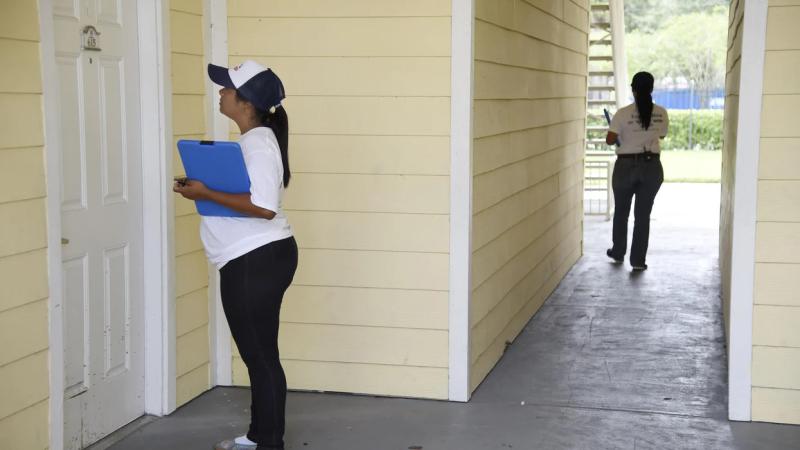Midterms 2022: DNC launches Global Address Dataset
By: Issie Lapowsky (Protocol)


The DNC is not attempting to empower voters or protect the voter franchise. The DNC is developing a product to attract customers. The DNC's new product isn't about governing. The DNC is a big business that functions like a big business. And like any other big business it's all about the bottom line; it's all about the money.
The DNC is a private enterprise competing in the marketplace with other data silos. And the DNC is using the agglomerated data for its own benefit, not for the benefit of the voters or the country. There isn't any way to opt out of the DNC's new data tool. Everyone is in whether they like it or not. People do not have a voice or a choice. The DNC knows where to find you even if the DNC doesn't know (or care) who you are.
The DNC is defending American democracy? Not hardly. The DNC is developing tools to harass, intimidate, and frighten voters.

Even in a world where your data is being bought and sold and swapped by the second, a political campaign that wants to send a canvasser to knock on your door might still have a pretty hard time figuring out where your door actually is.
Maybe you moved and never changed your registration address. Maybe you’re not registered, so your address isn’t in the voter file at all. Or maybe you live on tribal land or in rural America and don’t have a street address — at least, not one anyone could easily plug into Google Maps.
For politicians and their parties, that leaves a lot of literal ground uncovered, which is why the technology team at the Democratic National Committee has spent the last three years building a tool it says could begin to solve the problem.
The DNC’s new Geographic Address Dataset is a repository of 260 million addresses in the U.S., which the tech team painstakingly compiled by combining nearly a dozen sources — from the voter file to Postal Service data to records from private vendors. That includes 25 million new addresses that were never before included in the DNC’s records. The team affixed nearly all of the 260 million records with census block data, giving Democratic campaigns a new window into demographic information on hundreds of millions of homes, as well as geocodes, which tell campaigns the actual latitude and longitude of where hard-to-find homes exist on a map.
“As much as we all live online these days, people also live in physical locations, and specifically knowing where a voter is located powers door-to-door canvassing, direct mail outreach and just helping campaigns know and truly understand their jurisdictions,” Nell Thomas, chief technology officer of the DNC, told Protocol.
Amassing more accurate addresses may sound like a humble achievement in the world of campaign tech, where every election cycle brings a new round of entrants, claiming that digital ads — no, wait — text messages — no, actually — “relational organizing” is the future of campaigns.
But the Geographic Address Dataset is a more meaningful development than it may initially seem. Historically, campaigns and political parties have focused on collecting as much information about individual people as possible, starting with all the data they can get — phone numbers, Facebook profiles and more — on names contained in the voter file. But the voter file, by definition, only includes the names of people who have registered to vote, leaving out millions of Americans who aren’t registered.
This data set takes a different approach, telling campaigns not everything they need to know about a given person, but everything they need to know about a given address, regardless of whether they know the name of the person living there or not. “When we know that those [households] are in areas where we have a lot of supporters of the Democratic Party, it’s easier for us to target those people and turn out our vote and register Democrats to get out in the next election,” said Jesse Presnell, a DNC engineer who helped build the Geographic Address Dataset.
By focusing on addresses, not individuals, the DNC was able to find 8 million homes for which the party had addresses but no geocodes that would have enabled a campaign to actually go find that home on a map. This work has given the party a 10% increase in canvassable voters on tribal lands and an 11% increase in canvassable voters in rural America.
“We’re clearly missing a huge chunk of the electorate,” said Raffi Krikorian, CTO of Emerson Collective, who preceded Thomas as CTO of the DNC. “If you can flip that equation on its head and no longer look through the lens of the voter file, but look through the lens of the electorate, that is a big deal in my mind.”
The question is, of course, what took so long? Having an accurate address book is hardly a novel concept, and the data sets the DNC is working with have been around for a while. The truth, Thomas said, is that combining and vetting those data sets is a messy, time-consuming job that’s hard to pull off in a cyclical business.
But that’s starting to change. The DNC’s tech team is now bigger than ever, with more than 65 people on staff, which has allowed the party to take on an ambitious project like this one even between major elections. “We're not getting smaller, and that's really unusual,” she said.
The DNC also overhauled its data infrastructure three years ago, retiring an outdated system that was prone to crashing any time it got overloaded and that Democratic operatives referred to as a “shit show.” In 2019, the party replaced that system with a new, more sophisticated data warehouse called Phoenix, which is based on Google Big Query. “Working with billions of rows of data is not something that we would have been able to do until we got on Big Query,” Presnell said.
The new data set, which is continuously updating, will initially be available to campaigns and party officials through the Phoenix data warehouse. The tech team plans to begin training state party officials on how to use the data set this week and hopes to funnel the data into other voter contact tools, like the party’s main voter file, which is called the VAN, soon. “This will absolutely be extremely useful and effective and ready for election season,” Thomas said.
But while Thomas’ team has worked to ensure the technology is ready for the midterms, Krikorian warns that it will take more than a single election cycle for the party to really reap the benefits of this kind of undertaking. One of the biggest challenges in building technology for campaigns is that both focus and funding tend to wane after an election is over. For evidence of that, look no further than Alloy, a $35 million attempt to reinvent the voter file for Democrats, which launched in 2018 and shut down shortly after the 2020 election, after it failed to gain traction with the party.
And with Democrats expected to get clobbered this November, it may be hard to see whether this data set actually did anything to improve the party’s chances.
“This is a hard project. This is not something you pull off in two years. This is not something you pull off in four years. This is a shift in the mentality about how to think about voter data in a political party,” Krikorian said. “She’s going to need to make this successful in two years and four years, but this is going to take a decade to get right.”
Addresses also aren’t the DNC’s only focus this year. The tech team is spending another $5 million to buy other data sets, including cell phone numbers, to help with voter contact.
And yet, Thomas believes that the new tool could help give Democrats an edge they can’t get by flooding people’s phones. “The most impactful interaction a campaign can have,” she said, “is in the real world at a door.”



The DNC knows where to find you. That's how organized crime works.
And somehow politicians are still out of touch with those who they "represent".
Oh yeah, nothing says "vote for Candidate "X"" like spam calls.
Glad that shit is illegal where I live.